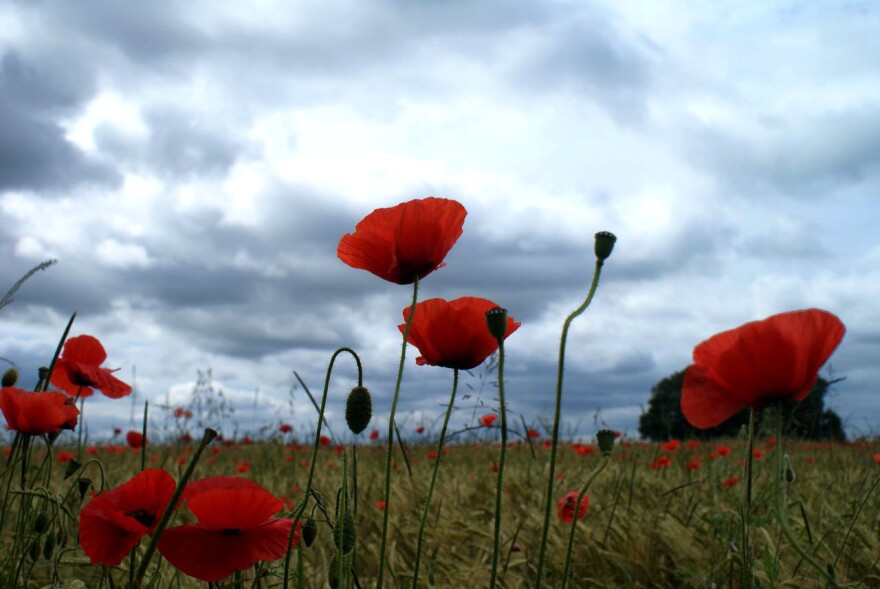The Armistice ended what was called the Great War, or the War to End All Wars. The latter name didn’t stick. The war was eventually renamed World War I.
More than 16 million people died between 1914 and 1918.
For much of the war, the front lines barely budged. Soldiers fought in muddy trenches, subject to disease, vermin, chemical weapons, shell shock, and the enemy’s bullets and bayonets. Refugees streamed out of Belgium, Serbia, Russia, Armenia and France.
When I was a little girl, soldiers from World War I still marched in Veterans Day parades. Many of them wore a poppy in tribute to John McCrae’s “In Flanders Fields.”
This poem was written from the point of view of dead soldiers during the battle of Ypres in Belgium in 1915. It begins:
In Flanders fields the poppies blow Between the crosses, row on row, That mark our place ...
The poppies remind us that nature endures despite the horrible things men do to each other. To me, these bright red flowers also represent the spilled blood and lost hopes of the war dead.
What were the lessons of World War I?
That we should never rush into war. That we should never conflate patriotism and militarism.
That we should consider civilian victims as well as soldiers. And above all that, the victors in a conflict should avoid punishing the vanquished.
That happened at the end of World War I -- and it contributed to the start of World War II.
I'd like to think we've learned at least some of these lessons.
I know we have to try -- to train our individual and collective psyches to see war only as a last resort -- and to pursue it, if we must, mindful of our own humanity, the humanity of civilians in the path of battle, and the humanity of those we fight.
We owe this to ourselves, to our children, and to the memory of those who gave their lives in the Great War and the wars that followed.
As McCrae concluded:
If ye break faith with us who die, We shall not sleep, though poppies grow In Flanders fields.
Commentator and historian Tinky Weisblat is a writer and singer who lives in Hawley, Massachusetts.






